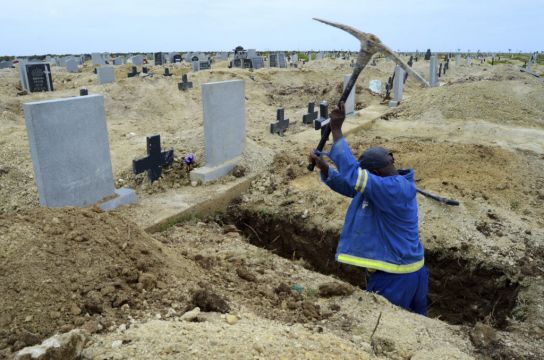Coronavirus cases are surging across Africa while people in richer countries are being vaccinated against Covid-19.
Africa Centres for Disease Control and Prevention director John Nkengasong has warned that the continent might not see vaccines until after the second quarter of 2021.
Mr Nkengasong called it a “moral issue” and urged the United Nations to summon a special session to discuss the ethical, fair distribution of vaccines to avoid “this north-south distrust in respect to vaccines, which is a common good”.
He said Covid-19 will not be defeated in the West alone and took aim at “today’s dialogue of suspicion” as rich countries buy vaccines “in excess of their needs while we in Africa are still struggling with the Covax facility,” the multinational initiative designed to deliver at least some vaccines to less developed countries.
Africa will not receive nearly enough vaccines from Covax to reach the goal of vaccinating 60% of the population to achieve herd immunity, Mr Nkengasong said, and he appealed to countries with excess doses to give them to Covax or countries in need.
He said: “We need to show global co-operation, global solidarity. The time to translate those powerful words into action is now.”
He has warned that coronavirus could become endemic in Africa if vaccinations take too long.
Africa’s 54 countries now have a total of more than 2.3 million confirmed infections, including 100,000 in the past week.
“Clearly the second wave is here, no doubt,” Mr Nkengasong said. He called this “a pivotal moment in the history of our continent” with Africa’s development in the balance.

As he spoke, the World Trade Organisation was meeting in Geneva on a request by South Africa and India to waive some intellectual property rules to allow for faster, easier access to Covid-19 vaccines around the world.
“But a small group of high-income countries and their trading partners have opposed it including Brazil, the European Union, Canada, the United States, Japan and the United Kingdom,” Human Rights Watch said in a statement with Amnesty International supporting the waiver.
Rohit Malpani, a Paris-based public health consultant, said opposition to the waiver would further delay the production of vaccines.
He said: “We have a situation where donor countries say they’re willing to provide funds to Covax to buy vaccines but there are none available because of the (intellectual property) issue.
“It’s like inviting someone to dinner and giving them a plate but then keeping all the food.”







